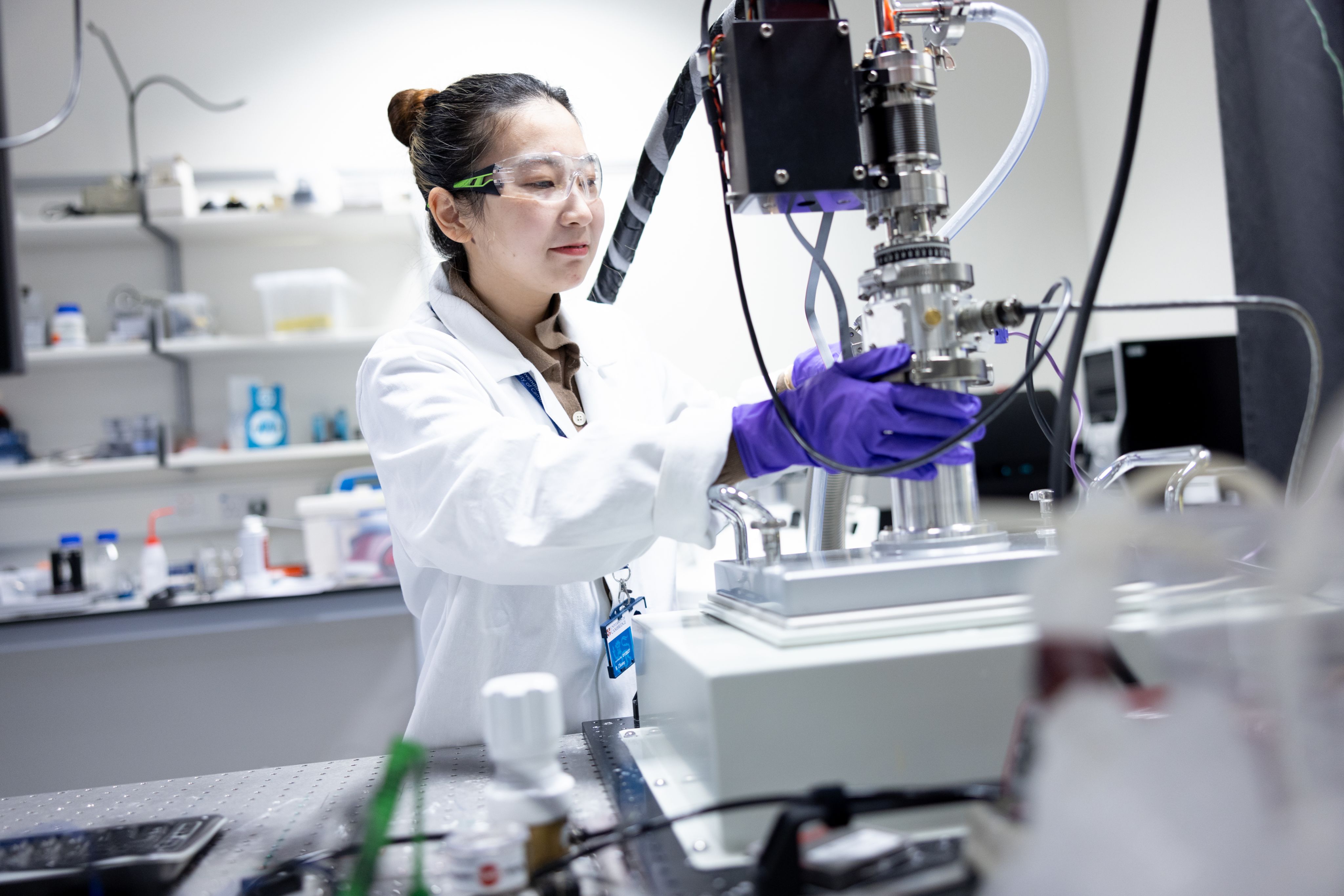Research excellence at CEB
Cambridge’s global reputation in Engineering, Chemical Engineering and Biotechnology, and Materials Science recognised in REF 2021.

The results from the latest Research Excellence Framework (REF) have recognised the global impact of Cambridge’s research in the combined fields of Engineering, Chemical Engineering, Materials Science and Biotechnology with the publication of results for Unit of Assessment (UoA) 12.
At Cambridge, Chemical Engineering and Biotechnology (CEB), Materials Science and Metallurgy (DMSM) and Engineering (CUED) are three independent departments within the University.
This is the first time that the three departments have made a joint REF submission. The excellence of the combined results reflects the close collaborative relationships amongst the departments, and with other departments in the Schools of Technology and the Physical and Biological Sciences, as well as externally, both nationally and internationally.
99% of Cambridge’s overall submissions within the Engineering Unit of Assessment 12 – to which our department made a significant contribution – have been rated as ‘world leading’ or ‘internationally excellent’, demonstrating the major impact that researchers in our department are making every day.

The REF is the system for assessing the quality of research in UK higher education institutions and is undertaken by the four UK higher education funding bodies: Research England, the Scottish Funding Council, the Higher Education Funding Council for Wales, and the Department for the Economy, Northern Ireland.
Among the data submitted by universities and other institutions are case studies that describe the impact of their research – where they have made a difference to society, health, the economy, for example.
The combined Departments returned 255 FTE research staff to the REF.
Within UoA 12, 70% of Cambridge’s submissions were awarded the highest rating of 4* overall, meaning they are ‘world-leading’.
The average GPA for Research Environment was 4.0 (the highest possible), underlining the strength of the support for research and researcher development conducted coherently across the three independent departments.
The score for impact was 3.82, underlining Cambridge’s contribution to industry and society, nationally and internationally.
The average weighted score – the ‘grade point average’ – for the UoA is 3.69.

Professor Clemens Kaminski, Head of the Department of Chemical Engineering and Biotechnology, said:
“I am delighted to see this result, placing Cambridge near the top of the country in all assessment categories for the Engineering disciplines.
"The Department of Chemical Engineering and Biotechnology, CEB, has played a major role in reaching this result and I am delighted to see the recognition of the impact CEB science is making in tackling global challenges.
"Research at CEB ranges from molecules to systems, turning fundamental understanding into beneficial technologies to create a healthier and more sustainable future.”

Professor Anne Ferguson-Smith, Pro-Vice-Chancellor for Research, added: “I would like to congratulate and thank everyone who has taken part in this year’s REF for all their hard work, which we believe has paid off in these results. What we see today is not just the excellence of Cambridge research, but also the breadth of its impact, with researchers across many disciplines bringing a fresh perspective on how we tackle major problems facing our world today.”
For the purpose of the REF, each academic discipline is assigned to one of 30 out of a possible 34 units of assessment such as Engineering, Chemistry, Business and Management Studies and Philosophy. Each unit is judged by three criteria – outputs (such as publications, performances, and exhibitions), their impact, and the environment that supports research.
Our global research
Cambridge research spans all seven continents, covering more than 100 countries, from the Arctic to Zambia.
Recycling inert gases used in manufacturing photovoltaics
Fundamental research into solid-state oxygen carriers at the Department of Chemical Engineering and Biotechnology has been used to develop a device – the ArgonØ™ – which cleans and recycles inert gases that are used particularly in the manufacture of silicon wafers for solar PV panels and microelectronic devices.
These noble gases are needed to provide an inert atmosphere during the manufacturing process.
Gas Recovery and Recycle Ltd (GR2L), a company set up to commercialise the research, has to date exported more than 70 of its ArgonØ gas recycling units to eight countries (China, Malaysia, Norway, Singapore, South Korea, Taiwan, Thailand and Vietnam), generating £6.2 million in revenues since 2017, making an estimated total saving for its customers in this period of $42 million and creating up to 10 jobs across the UK supply chain.
Image credits:
- Title image: © Martin Bond
- Images of CEB building and a student operating the CNC machine: © Martin Bond
- Portrait image of Clemens Kaminski: © University of Cambridge/Phil Mynott

Credit: Zbynek Burival/Unsplash
Credit: Zbynek Burival/Unsplash
